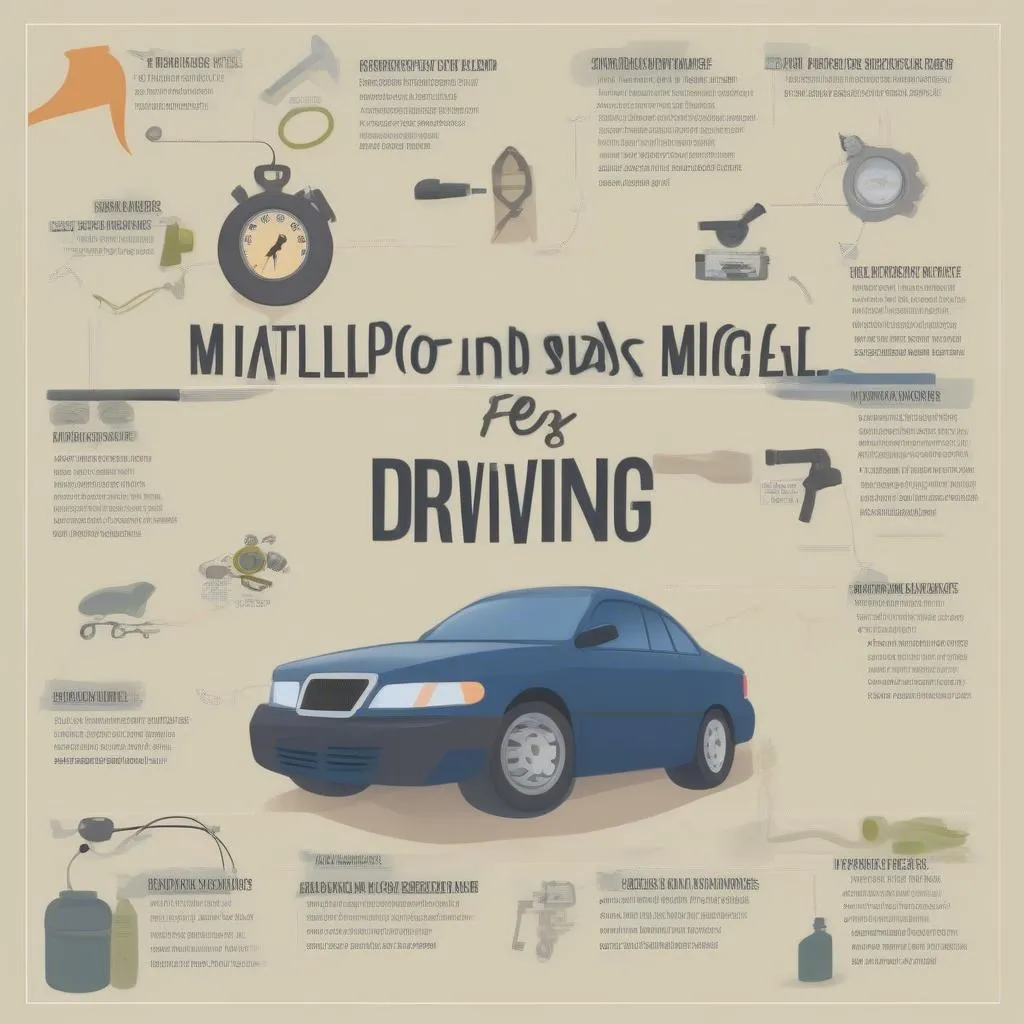BMW Series 3 Gas Mileage: A Comprehensive Guide
Have you ever been curious about how much gas your BMW Series 3 consumes? The BMW Series 3 is known for its sleek design, sporty performance, and luxurious interior, but how does it fare in terms of fuel efficiency? Let’s delve into the world of Bmw Series 3 Gas Mileage and explore everything you need to know about it.
Understanding BMW Series 3 Gas Mileage
Understanding BMW Series 3 gas mileage is essential, especially for individuals who prioritize fuel economy. This information can help you make informed decisions regarding car ownership and driving habits. As a mechanic specializing in European cars, I’ve witnessed firsthand how various factors can influence gas mileage.
Factors Influencing BMW Series 3 Gas Mileage
Several factors contribute to the gas mileage of a BMW Series 3:
- Engine Size and Model Year: A smaller engine, like the 320i, generally delivers better gas mileage than a larger engine, like the 340i. Additionally, newer model years often incorporate more fuel-efficient technology, leading to improved mileage.
- Driving Habits: Aggressive acceleration, frequent braking, and excessive idling can all significantly impact gas mileage. Adopting a smooth driving style can significantly improve fuel economy.
- Vehicle Maintenance: Regularly maintaining your BMW Series 3, including checking tire pressure, changing oil, and ensuring proper engine performance, can optimize gas mileage.
- Road Conditions: City driving with frequent stop-and-go traffic tends to lower gas mileage compared to highway driving, where you can maintain a steady speed.
- Environmental Factors: Driving in extreme weather conditions, such as intense heat or cold, can affect gas mileage.
Typical Gas Mileage for BMW Series 3 Models
While precise gas mileage figures can vary based on the factors mentioned above, here’s a general overview of the fuel efficiency you can expect from common BMW Series 3 models:
- BMW 320i: EPA-estimated fuel economy of 28 mpg city, 38 mpg highway, and 32 mpg combined.
- BMW 330i: EPA-estimated fuel economy of 26 mpg city, 36 mpg highway, and 30 mpg combined.
- BMW 340i: EPA-estimated fuel economy of 23 mpg city, 33 mpg highway, and 27 mpg combined.
It’s important to note that these are just estimations and your actual gas mileage may differ.
Tips for Improving BMW Series 3 Gas Mileage
- Drive Smoothly: Avoid aggressive acceleration and braking. Maintain a consistent speed and anticipate traffic flow.
- Avoid Idling: Turn off your engine when stopped for extended periods, such as at drive-thrus or traffic lights.
- Check Tire Pressure: Underinflated tires can significantly reduce gas mileage. Ensure your tires are inflated to the recommended pressure.
- Maintain Engine Performance: Regular oil changes and proper engine maintenance are crucial for optimal fuel economy.
 Tips for improving BMW Series 3 gas mileage
Tips for improving BMW Series 3 gas mileage
Frequently Asked Questions (FAQs)
Here are some commonly asked questions about BMW Series 3 gas mileage:
What is the best way to improve gas mileage in my BMW Series 3?
The most effective ways to improve gas mileage are:
- Drive Smoothly: Avoid sudden acceleration and braking, and maintain a consistent speed.
- Avoid Idling: Turn off your engine when stopped for extended periods.
- Check Tire Pressure: Ensure tires are inflated to the recommended pressure.
- Maintain Engine Performance: Regular oil changes and tune-ups are essential.
Does the BMW Series 3 have a fuel economy mode?
Yes, many BMW Series 3 models offer an “ECO PRO” mode that optimizes engine performance and fuel economy. This mode adjusts various settings, such as throttle response and air conditioning, to maximize efficiency.
How does the BMW Series 3 compare to other vehicles in terms of gas mileage?
While the BMW Series 3 boasts good fuel economy for a performance car, it may not be as fuel-efficient as some compact or hybrid vehicles. However, the BMW Series 3 strikes a balance between performance and fuel efficiency, making it a popular choice for those looking for a sporty yet economical car.
Is the BMW Series 3 a fuel-efficient car?
The BMW Series 3 can be considered fuel-efficient, especially compared to other performance vehicles. However, it’s essential to choose the right engine size and adopt fuel-saving driving habits to maximize gas mileage.
What is the average gas mileage of a BMW Series 3?
The average gas mileage of a BMW Series 3 can vary depending on the model year, engine size, and driving conditions. However, a general average range for most models is between 25-35 mpg.
How can I track my BMW Series 3 gas mileage?
Most modern BMW Series 3 models come equipped with onboard computers that display real-time fuel consumption and average gas mileage. You can also manually track gas mileage by filling your tank and noting the mileage at each fill-up.
Conclusion
Understanding the factors influencing BMW Series 3 gas mileage empowers you to make informed decisions regarding your driving habits and vehicle maintenance. By adopting a fuel-efficient driving style and maintaining your BMW Series 3, you can maximize fuel economy and enjoy the sporty performance of this iconic car. If you have any further questions about BMW Series 3 gas mileage or need support with your car’s diagnostics, please don’t hesitate to contact us via Whatsapp: +84767531508. We have a team of experts ready to assist you 24/7.
